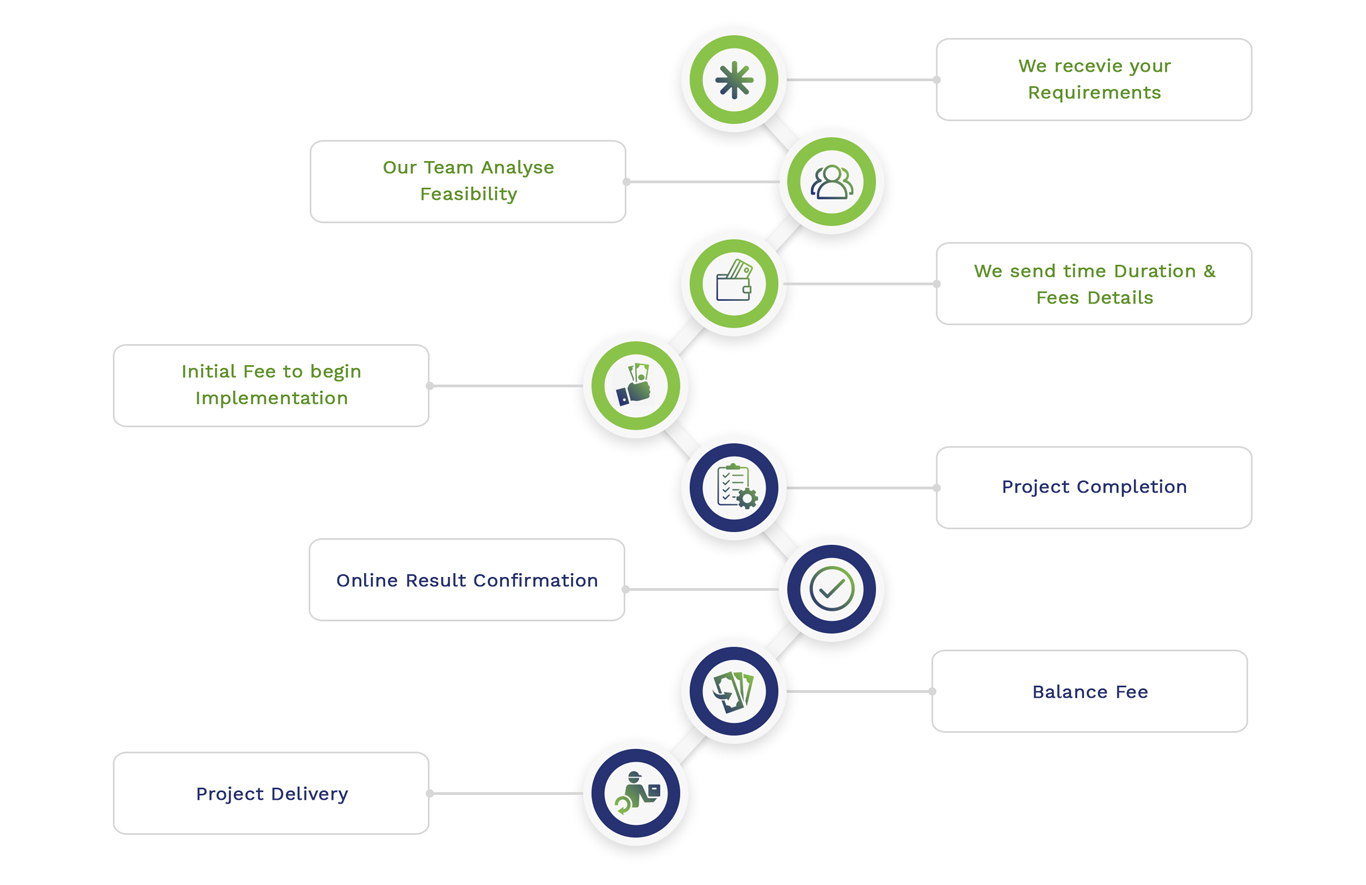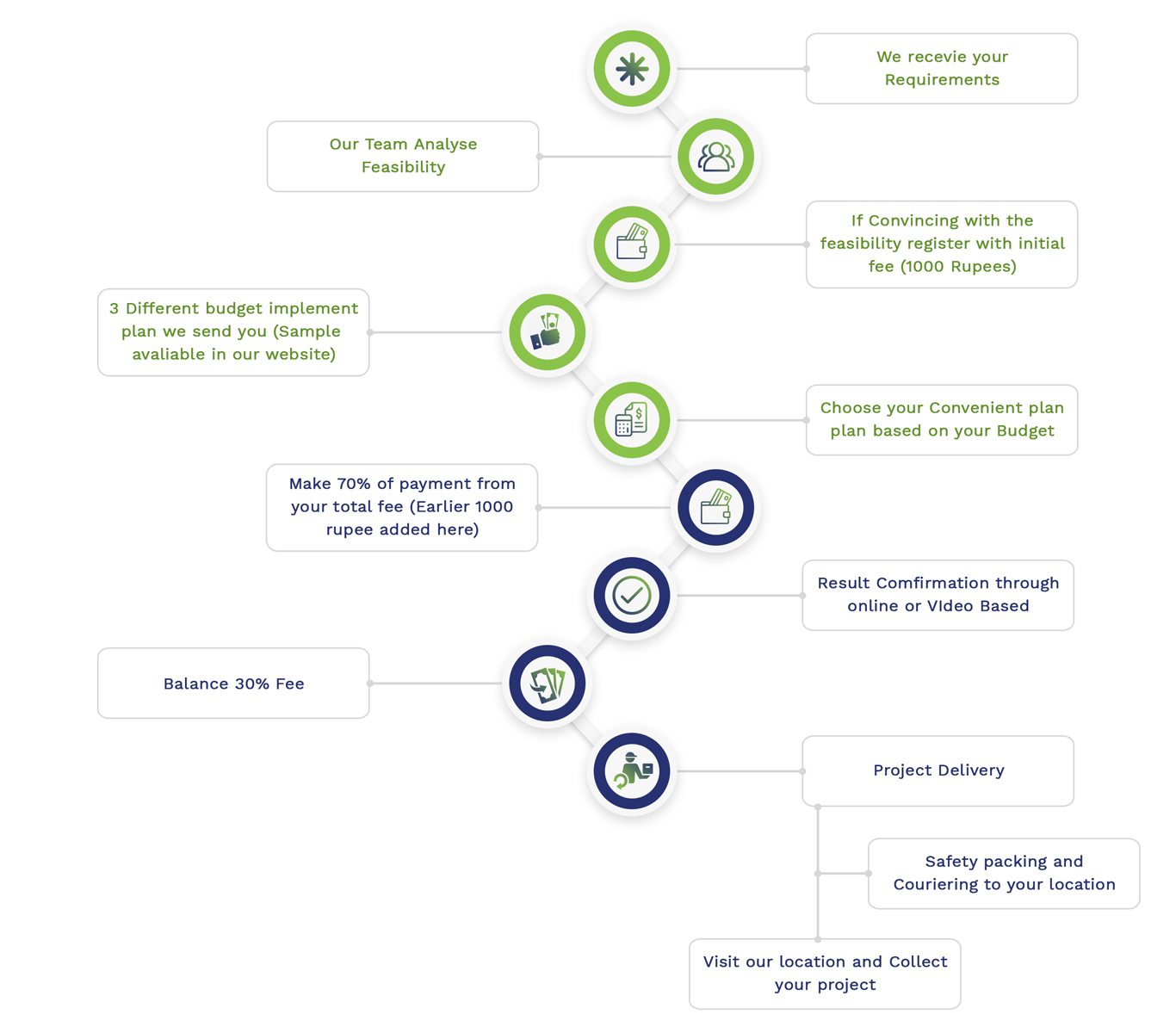The deployment of artificial intelligence (AI) model for simulation to analyze complicated systems is the latest and essential topic recently. Artificial intelligence (AI) coding approaches provide for far more accurate and resilient simulations, as well as assisting the users in the development, execution, and interpretation of experiments conducted. The technology helps minimize time, expense, and mistakes while building highly advanced, structurally integrated smart systems.
We always aim at researching modern methods, approaches, platforms, structures, algorithms, and procedures that may be utilized to simulate smart systems using artificial intelligence. This article will help you fetch more insight into Simulation in AI where we will explain all the basic and advanced requirements to carry out your AI research. First, let us start with AI modeling
What is Modelling in artificial intelligence?
- A simulation mimics a decision to allow automated functioning and comprehension in machine learning, artificial intelligence, and deep learning.
- Systems models of AI and machine learning are the mathematical techniques, procedures, and algorithms that are trained with information and actual professional input to reproduce a judgment that an expert will reach if presented with almost the same facts.
We had explored all of the simulator tools available for artificial intelligence projects in the long term. Each of these tools has its own set of advantages and disadvantages. In the end, having an expert’s insight into the issue can only benefit your study. We give one of the most trustworthy research assistance across all AI research fields. We have a distinguished name amongst researchers everywhere around the world because of our commitment to quality. Let us now discuss the motivational questions for conducting your Simulation in AI studies.
Motivational questions
- With limited human involvement, how could simulators understand variations in real control system behavior?
- Is it possible to incorporate simulators into machine learning techniques such that the process of learning may be completely automated? If so, how would you go about doing it?
- Is it possible that integrating machine learning with simulations will result in a better degree of trust in simulations as a result of the machine learning models’ increased quantifiable accuracy?
You can surely get detailed explanatory notes and technical explanations on all such frequently asked questions and research queries. Our guidance has resulted in a number of successful AI simulation projects, so we’re extremely familiar with all the forms of simulation models, protocols, standards, topologies, regulations, and interfaces. Let us now have a quick overview on AI modeling and simulation
Overview OF Artificial Intelligence-based Modelling and Simulation
Artificial Intelligence called AI is a simulation in which a model is used to simulate general human cognition or learning. The thinking, memory, observation, organization, language understanding, solution, and decision-making abilities of an AI-based simulation model are generally replicated.
Developing AI-based simulation frequently employs rule-based knowledge representation and processing. For instance, an Expert System is a type of cognitive stimulation that is generally built with rule-based sources of knowledge.
The simulation software is thus chosen depending on the aforementioned features. Also, the following characteristics of a simulator can be of immense importance while you compare multiple simulation platforms to choose the one for you.
- Steps involved in the pre-processing phase
- Amount and size of the data set
- Time taken for training
- Hardware requirements
Our skills and knowledge can help you determine the best strategy for your project. Almost all of our researches involving AI systems have made use of all of the simulation tools. As a consequence, we are highly trained and experienced, and our experts are qualified to provide you with full Simulation in AI research help. Let us now look into the importance of AI simulation and modeling
What is the role of artificial intelligence in Modelling and simulation?
Performance measurement in a knowledge represented model, strategic planning and decision making inside a simulation, fast development of prototypes, data processing and analysis of simulation outputs, and model updating and management are all examples of AI related projects approaches that are used in the simulation study for smart and intelligent systems.
- Knowledge-based systems, data science, pattern classification are artificial intelligence applications.
- Modelling, procedures, simulators, and other approaches are examples of simulation techniques.
The simulation models used in the training phase usually establish the machine learning models by linking the loads to critical circumstance structural responses. The trained models are then used in machine learning projects for or detection of load patterns and Critical emergency state indication at an early stage. What are the steps in an AI simulation algorithm?
- The important variables are identified on the basis of the focus of your project
- If proper data are available then the predictability of variables is determined
- In case if the variables can be predicted then the machine learning model is trained validated and tested for those particular variables
- Finally the machine learning models are integrated with the simulation experiments
Usually, we offer all of the necessary technical information to our customers before they begin their projects. Researchers praised this strategy since it supplied them with ample research data sources for comparison perhaps in the beginning phases. As a result, we guarantee that we will provide you with the algorithmic processes, code specifics, and a step-by-step methodology for your project design for simulation in AI Projects. Let’s have a look at how simulation may aid AI.
What is Artificial Intelligence Simulation ?
- Learning from data has the advantage of being able to establish automation of the full procedure with little or no user intervention.
- This could be beneficial for simulating system dynamics in increasingly varying settings.
- Self-Adaptation Realization- simulators that really can change their actions in relation to machine learning projections.
- It aids in reducing the epistemological ambiguity associated with subjective system knowledge assessment.
- Simulation model is primarily determined and learned by instances, it functions very well.
In all these ways Simulation is helpful in AI. Our engineers keep up to date on a regular basis to keep their subject expertise up to current. As a consequence, we can assist you in understanding any of the most recent AI simulation projects. Connect with us to stay up to date on the latest developments. Let us now look into a common question that if the simulation is a part of AI.
Is simulation part of AI?
Another important potential in simulation modeling is to use AI for optimizing and calibrating purposes. The deep learning elements may well be employed in simulation models to imitate the real system, or they can also be used in training AI system components. The following are some AI simulation goals.
- Appraisal
- Problem-Solving Mechanisms
- Correlation
- Assumption of Outcome
- Examination of Sensitivity
- Configuration and Optimization
- Selecting and Ranking
You can get answers to such important research questions related to artificial intelligence simulation with us. With the assurance of on-time project delivery and advanced research help in thesis writing and paper publication, we are one of the few trusted online project guidance providers in the world. Let us now talk about the integration of machine learning simulation and modeling
Integration of Modelling and Simulation into machine learning
For the integration of simulation in AI and project modeling of machine learning the following aspects are to be considered
- Simulation
- Monte Carlo
- Setting the hyperparameters
- Generating experimental replays
- Analysing the output
- Modelling
- Temporal aspects
- Real time asynchronous reinforcement learning
- Delayed reward
- Hierarchical abstraction
- Multiagent
- Static
- Dynamic
- Specification
- Selection of algorithms
- Temporal aspects
The practical demonstrations provided by our engineers can invoke many innovative ideas on ML Simulation and modeling integration. The authentic research data that we provide can help you gain advanced conceptual clarity and insights. Let us now see how Simulation in AI is performed
How to perform for simulation in AI?
- The first and foremost step in AI simulation is a specification of the system
- The research object is then identified and the system goals are set clearly
- System boundary are divided and model objects and categories are selected
- The major factor influencing the system is selected
- And then the hierarchical relationship among different factors are established
- The structural relationship of the system components are modeled
- Model-identification is then performed
- Qualitative and quantitative model analysis verification and evaluation are then conducted
- As a result the modeling is finally completed
In the end, certain descriptions about the system and machine learning models developed are listed based on the following points
- Structural and behavioral description where the behavioral description is based on the predictions made by machine learning model after being trained by the system knowledge
- Integration of structure and the behavior of components
- Generated simulation and their results
Are you looking for the best experts to support you in writing programs and codes for your projects regarding simulation in AI? Then you can unquestionably check out our website and reach out to us with more confidence as our experts have more than two decades of experience in AI simulation. We also make ourselves experts in the recent developments too. In this respect let us look into the trending topics of research in AI simulation below
What are Important AI Simulation Topics ?
- Smart system simulation and modeling based on agents
- Smart system simulation and deep learning mechanism
- Artificial intelligence-based modeling and simulation
- Modelling and simulation of the environment and ecosystem
- AI and smart system service integration
- Socio-economic smart system simulation
- Modelling and simulation of smart system networks by artificial intelligence methods
For all these topics, you can get complete research support from us. The following are some of the most important topics, their components, and associated aspects of simulation in AI
- Neural modeling
- Deep learning and transformer models
- Attention models and data representation

- Predictive and unsupervised models
- Bayes equation
- Probability and cumulative distributions
- Classification and regression
- Prescriptive optimizing
- Prescriptive artificial intelligence and simulation
- Linear, constraint, and Powell optimization
- Maximum likelihood and bin packing
- Descriptive analytics
- Testing hypothesis and statistics
- Custom equations and feature extraction
- Relative changes and correlation
- Natural language processing
- Text summarising and semantic analysis
- Detecting evidence and entity
- Language understanding and surface form analysis
We motivate you to talk with our experts before choosing a topic or to come up with your own ideas. We will provide you with custom research support based on your interests and your institutional format. To address the difficulties in diverse situations, a number of modeling techniques are applied in AI. We have a lot of expertise and understanding of AI simulators. If you have any questions about any of the simulators, please email us. We promise we will advise you on the use of these tools, the development of algorithms, and effective coding. Let us now see about AI power electronics optimization in the following
Optimization and AI in Power Electronics
Due to high computation efforts or erroneous material characteristics and practical operating conditions, a rising number of real-world design issues can rarely be handled by physical-based methods or simulation studies.
Precision forecasts of complicated physical processes may well be made utilizing data-driven methods and artificial intelligence using observed or simulated data as described below
- Long short-term memory (or LSTM) and WaveNet methods for predicting the state of charge (or SoC) of lithium-ion battery installations
- Fully linked neural networks for electric circuit metamodeling
- Detecting defects in measured and simulated pictures of power electronics, lithographic masks, and semiconductor wafers.
When it comes to Simulation in AI projects, all the above criteria and credentials are critical. In order to provide you with deeper insight, we will give you the details of our successful AI projects. After looking into them you can consult our technical experts for a more comprehensive explanation and any related doubts. We are here to provide you with solutions to any kind of problem instantly. Let us now see the open-source AI library for simulation
Open source libraries for AI simulation
- Tree-based Pipeline Optimization Tool (or TPOT)
- TPOT is indeed an AutoML method which employs distinct genetic programming for all of its optimization methods.
- It is a Python library based on the scikit-learn framework.
- Auto-WEKA
- Auto-WEKA is the very first open source AutoML tool, stretching back to 2013.It is based on the open-source WEKA projects. In 2016, Auto-WEKA 2.0 was published, which included regression techniques, parallelism, and optimization approaches as additional measures.
- Auto-WEKA 2.0 is provided as a package in WEKA and is very user-friendly for both enthusiasts and programmers.
- Auto-Keras
- It is really an open source tool for learning automated neural networks.
- Auto-Keras uses network transformation and Bayesian optimization to solve the neural architecture search (NAS) issue.
For details regarding the usage of these libraries and certain other software platforms, you can check out our website. The in-depth research support that we provide for simulation in AI projects will surely fetch you great success. Let us now look into the data types in AI simulation
What are the types of data simulated using AI?
- Petrophysical data
- LAS files
- Raw well logs like SP, DT, GR and RESD
- Inferred logs like SW, PHI and PERM
- Dynamic data
- Simulation models
- Details of different properties like present oil saturation and pressure
- Recurrent measures like pulsed neutron logs
- Engineering data
- Field level pressure maps and artificial lift data like its type and velocity
- Individual well pressure data
- Basic well data
- Data on perforation like top, base and well header like name and coords
- Deviation surveys like incl, azt and attributes like type and spud date
- Geological data
- Grid properties in 2.5 D and 3D
- Horizons like structural architecture
- Stratigraphic interpretations like tops
- Production data
- Formation of production allocation
- Production and injection data for individual Well
- Well decline data
Until now we have guided successful projects in artificial intelligence involving all these data types in large amounts. In order to get benchmark research references from top journals, you can reach out to us at any time for Simulation in AI Projects. We ensure to offer you timely and advanced ultimate project guidance.
Subscribe Our Youtube Channel
You can Watch all Subjects Matlab & Simulink latest Innovative Project Results
Our services
We want to support Uncompromise Matlab service for all your Requirements Our Reseachers and Technical team keep update the technology for all subjects ,We assure We Meet out Your Needs.
Our Services
- Matlab Research Paper Help
- Matlab assignment help
- Matlab Project Help
- Matlab Homework Help
- Simulink assignment help
- Simulink Project Help
- Simulink Homework Help
- Matlab Research Paper Help
- NS3 Research Paper Help
- Omnet++ Research Paper Help
Our Benefits
- Customised Matlab Assignments
- Global Assignment Knowledge
- Best Assignment Writers
- Certified Matlab Trainers
- Experienced Matlab Developers
- Over 400k+ Satisfied Students
- Ontime support
- Best Price Guarantee
- Plagiarism Free Work
- Correct Citations
Expert Matlab services just 1-click

Delivery Materials
Unlimited support we offer you
For better understanding purpose we provide following Materials for all Kind of Research & Assignment & Homework service.
 Programs
Programs Designs
Designs Simulations
Simulations Results
Results Graphs
Graphs Result snapshot
Result snapshot Video Tutorial
Video Tutorial Instructions Profile
Instructions Profile  Sofware Install Guide
Sofware Install Guide Execution Guidance
Execution Guidance  Explanations
Explanations Implement Plan
Implement Plan
Matlab Projects
Matlab projects innovators has laid our steps in all dimension related to math works.Our concern support matlab projects for more than 10 years.Many Research scholars are benefited by our matlab projects service.We are trusted institution who supplies matlab projects for many universities and colleges.
Reasons to choose Matlab Projects .org???
Our Service are widely utilized by Research centers.More than 5000+ Projects & Thesis has been provided by us to Students & Research Scholars. All current mathworks software versions are being updated by us.
Our concern has provided the required solution for all the above mention technical problems required by clients with best Customer Support.
- Novel Idea
- Ontime Delivery
- Best Prices
- Unique Work
Simulation Projects Workflow

Embedded Projects Workflow



 Matlab
Matlab Simulink
Simulink NS3
NS3 OMNET++
OMNET++ COOJA
COOJA CONTIKI OS
CONTIKI OS NS2
NS2






